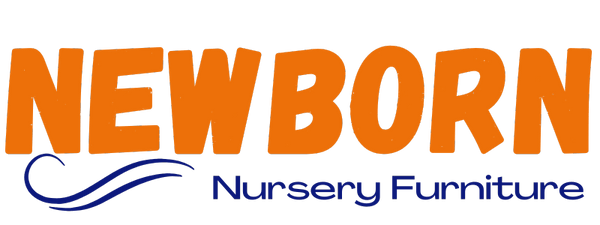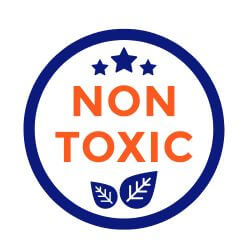Choosing the right educational approach for your child can be a challenging task for any parent. One method that has gained popularity is the Montessori philosophy, known for fostering independence and a love for learning. If you're asking yourself, "How do you know if Montessori is right for my child?", you’re not alone. In this article, we’ll explore the core tenets of Montessori education, its advantages, and how to determine if it aligns with your child's needs.
Understanding Montessori Education
Montessori education is based on the teachings of Dr. Maria Montessori, an Italian physician who believed in observing children to understand their natural learning tendencies. The Montessori method focuses on creating a nurturing environment where children can explore, discover, and grow at their own pace. The approach is characterized by:
- Child-directed learning
- Multi-age classrooms
- Hands-on learning experiences
- Emphasis on social interaction and cooperation
- Materials that promote sensory exploration
The Core Principles of Montessori
Montessori emphasizes the importance of a prepared environment, independence, and respect for a child's natural development. This means that classrooms are designed to cater to children's developmental stages, fostering self-motivation and curiosity. The learning materials are typically made from natural, sustainable resources. One of the great brands is Wood and Hearts, their products are designed to foster independence, creativity, and physical development in children.
Key Indicators: Is Montessori Right for Your Child?
While the Montessori method can be beneficial for many children, it might not be the best fit for everyone. Here are some key indicators to consider when evaluating Montessori education for your child:
Your Child’s Learning Style
Children learn in various ways. If your child thrives in a structured environment where they know what to expect, the Montessori approach, which is more flexible and child-centered, might be a challenge. However, if your child enjoys exploring, experimenting, and has a natural curiosity, they may flourish in a Montessori setting.
Independence and Responsibility
Observe your child’s inclination toward independence. Montessori education encourages children to take charge of their learning and daily activities. If they show an ability to make decisions, take responsibility, and manage tasks without constant guidance, they are likely to thrive in a Montessori environment.
Social Skills and Group Dynamics
Montessori classrooms typically encourage mixed-age groups, allowing younger children to learn from older peers while older students reinforce their knowledge by teaching younger kids. If your child enjoys social interactions and collaborative play, they may benefit greatly from the opportunities presented in a Montessori classroom.
Benefits of Montessori Education
Montessori offers several advantages that can positively impact your child's early learning experiences:
- Fostering a Love for Learning: Children are more likely to embrace lifelong learning when they are encouraged to explore their interests.
- Encouraging Independence: The method nurtures self-reliance, allowing children to develop confidence in their abilities.
- Developing Critical Thinking: Observational learning and problem-solving activities hone analytical thinking.
- Building Emotional Intelligence: Children learn to work together and understand their feelings and those of others, fostering empathy.
Academic Achievement
Research suggests that Montessori students often excel academically in traditional settings once they transition. Their critical thinking skills and eagerness to learn set a strong foundation for future education. It’s worth considering your child’s academic goals when evaluating educational styles.
The Montessori Method Vs. Traditional Education
Understanding how Montessori differs from traditional education can help clarify its suitability for your child. Here's a quick comparison:
| Montessori Education | Traditional Education |
|---|---|
| Child-centered learning | Teacher-directed instruction |
| Focus on developing the whole child | Focus on test scores and curriculum benchmarks |
| Hands-on materials for learning | Emphasis on textbooks and worksheets |
| Flexible timetable | Fixed schedule with rigid class periods |
Evaluating Your Child’s Response
As you consider Montessori for your child, take a step back and evaluate how they engage with their current learning environment. Here are some important questions to ponder:
Does Your Child Enjoy Solitary Learning?
Some children prefer solitary activities while others thrive in social settings. Montessori offers a chance for both. If your child enjoys deep concentration in an independent project, it's a significant sign that they might fit well in a Montessori context.
Are They Creative Problem Solvers?
Hands-on learning and the freedom to explore and create are at the heart of Montessori education. If your child often seeks innovative solutions or shows signs of creativity in problem-solving scenarios, they could benefit immensely from the Montessori approach.
Meeting with Montessori Educators
If you’re seriously considering the Montessori method, it’s a great idea to meet with educators or visit prospective schools. Here’s what to look for:
- Teacher Qualifications: Verify that educators have training in Montessori methods.
- Classroom Environment: Observe how classrooms are prepared for self-directed learning.
- Child-Teacher Interaction: Notice how teachers engage with children...
Is Montessori Right for Every Child?
No educational approach is a one-size-fits-all solution. While Montessori can be a nurturing and effective method, it’s essential to consider your child’s unique personality and learning style. Additionally, some children may not fully understand the self-directed learning approach, and they might benefit from more guidance initially.
Alternative Approaches
There are various educational philosophies besides Montessori, like Waldorf, traditional, and Reggio Emilia, among others. Exploring these options can help you make an informed decision about your child's education.
Your Role as a Parent
Your involvement in your child's education is crucial, regardless of the method you choose. Here are ways you can support their learning journey:
- Engage in Conversations: Discuss what they learned at school to show interest in their education.
- Provide Learning Materials: Invest in age-appropriate resources that align with their interests, perhaps emphasizing “wood and hearts” products that encourage exploration.
- Foster Curiosity: Create a home environment that invites inquiry and exploration.
Maintaining Flexibility
The educational landscape is ever-evolving. It’s wise to keep an open mind and be flexible. Your child's needs will change, and so might their learning preferences. Stay observant and receptive to seeking additional support or changes in their learning environment if necessary.
A Final Note on Choosing Montessori
Ultimately, the decision of whether Montessori is the right fit for your child should stem from careful deliberation and an understanding of their unique needs, preferences, and personality traits. Trust your instincts, observe your child closely, and consider visiting a Montessori school to see if it resonates with what you envision for your child's educational journey.
The path to determining the right educational framework can be filled with questions and uncertainties, but with the right approach, you can guide your child toward a fulfilling and enriching learning experience! Allow your family to explore the wonders of education, and you may just discover that Montessori opens a new world of growth and exciting possibilities. Happy learning!










